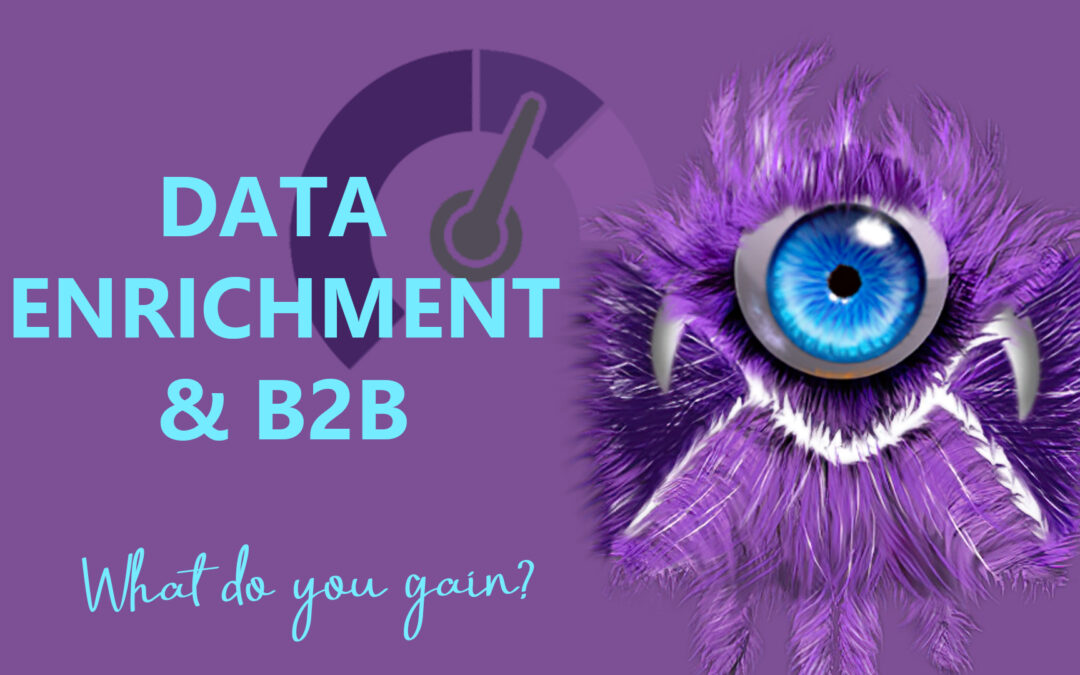Data has become the lifeblood of B2B companies and is used to power marketing, sales, and support. Data is at the core of every decision business leaders make to foster the growth and productivity of their organization.
Data enrichment holds the most promise for both marketing and sales because it involves adding new data points to your existing leads, thereby deepening your insight and supplying your sales team with more context.
When Do You Need Data Enrichment?
Data enrichment is vital for B2B businesses to stay ahead of the competition and make informed decisions. Here are a few situations where data enrichment is crucial.
1. You Have an Extensive Database
In theory, the larger your database the better. Afterall, the more information you have on more potential customers the more likely you will be able to close deals. However, the larger the database, the more complicated things get if your data is inaccurate or incomplete. Too much inaccurate and incomplete data begins to create a signal vs noise problem where more data actually begins to make you less effective. And even if you start off with perfect data, it’s going to deteriorate at over 30% per year. So, it’s not going to remain reliable for long.
This is where you need data enrichment to eliminate data inaccuracies and incomplete data. Data enrichment becomes essential for more effective, cleaner data processing, and more focused campaigns.
2. You Are Planning an ABM Campaign
Successful account-based marketing includes an informed, data-driven approach that targets individuals with the most critical challenges when making purchase decisions. ABM means targeting the right people, at the right companies, at the right time, and with the right content.
Without complete and accurate data, no amount of tailored content, segmentation, strategic messaging, etc. will make up for not being able to target the right decision-makers or the right companies. Data enrichment is the best way to ensure you have the most accurate, up-to-date profiles for your leads and clients.
3. You Rely on Inbound or Event Lead Sources
Every marketer knows that optimizing inbound lead forms is a delicate balancing act. The number of form submissions you receive is inversely proportional to the number of data points you need to gather. So, for every additional field you add to a form, you will receive fewer submissions. However, you need to equip your sales and marketing teams with enough data points to be able to prioritize the right accounts and contacts as well as the contact information needed to reach out to and connect with them.
Similarly, for organizations that rely heavily on events for lead generation, gathering all of the necessary information to optimize follow up is often outside of their control. Most events determine which data points they require registrants and attendees to submit and often what they require will not match what you need to be effective in your follow up.
And regardless of source, you have very little control over what information leads choose to provide. For most lead sources you have few options for preventing leads from entering personal, generic, or inaccurate information in your forms. And there’s always the legitimate accidents and mistakes they make in filling out the form.
4. You Are Expanding Your Offering
Expanding offerings or targeting new segments is one of the most challenging undertakings you can take on. Before expanding into a new space you have to be confident in your footing. By compiling complete information about your audience, you can minimize your risks and ensure the success of your new campaigns.
Data Enrichment supplies marketers with data points that would be difficult to obtain on a form due to the nature of the information.
The titanic databases of enrichment vendors contain such information for millions of companies, allowing you to get the data you need without sacrificing conversions on your landing pages.
Another option would be going beyond just job title to grade a lead. For example, if you target IT managers responsible for network security, then learning that each lead is, in fact, an IT manager is an important step, but it still leaves a lot of ambiguities.
Just because a lead has the right job title doesn’t mean they’re 100 percent the right customer for your product.
By using social data to enrich the profiles of IT managers in your database, such as our MailMonster, you’ll be able to pinpoint which certifications each lead has and adjust your grading accordingly for those who hold security certifications.
Data enrichment isn’t without its drawbacks. You are paying extra to increase the velocity of your nurturing programs, and you have to carefully vet data vendors to pinpoint which company would make the best partner for your business.
However, given the meteoric rate at which data has become ingrained in the marketing and sales process, using data enrichment to add the right information to your database is a worthwhile undertaking.
If done well, it can result in greater lead quality, which measures the true effectiveness of your demand generation efforts.

